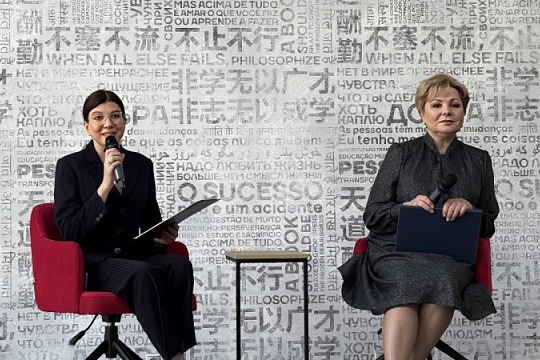Africa, Russia to collaborate on climate action

Africa's role in global climate discussions recently got a boost, following a deal signed between Russia and the African Union aimed at the advancement to equitable climate policies and ensuring that Africa's interests are better represented internationally.
The two sides agreed to develop a joint work plan that will include collaboration between African and Russian businesses, technology transfers and a fairer approach to carbon markets, according to a statement.
The commitment was made after Ali Daoud Mohamed, chair of the African Group of Negotiators on Climate Change and Special Climate Envoy of the president of Kenya, visited Moscow for discussions on the current global challenges including trade barriers like the EU carbon border fee. During the visit, Mohamed held discussions with key Russian officials.
Among the issues discussed was the historical responsibility of Western countries on climate change as a major emitter of greenhouse gases in their highly industrialized development.
Concerns were also raised on Africa being asked to make disproportionately ambitious commitments, while lacking the resources and infrastructure to do so, despite contributing only three percent of global emissions.
According to the African Development Bank, African countries need $277 billion annually until 2030 to effectively tackle the climate crisis. However, currently the continent receives only $30 billion annually.
Mohamed said many current global policies favor industrialized nations while unfairly restricting Africa's right to develop using its natural resources.
"It is noteworthy that Africa's historical contribution to greenhouse gas emissions is minimal. Yet, we face mounting pressure to set ambitious targets while being denied the fair use of our resources. A truly equitable approach should ensure development opportunities for all," he said.
Mohamed said the European Union's Carbon Border Adjustment Mechanism, which imposes additional costs on carbon-intensive imports, places an unfair burden on African exporters while allowing high-emission countries to maintain their advantage.
He said African countries are interested in developing reliable carbon data systems to help strengthen the continent's position in global negotiations.
"Accurate data on emissions and removals will be crucial in shaping Africa's climate policies and ensuring fair climate finance allocations," Mohamed said.
Andrey Melnichenko, chair of the Committee on Climate Policy of the Russian Union of Industrialists and Entrepreneurs, called for joint action, stating that Africa's 1.4 billion people, combined with Russia's diplomatic and technological resources, could form a powerful force for fairer climate policies.
A key outcome of the meeting was a potential for scientific and technological collaboration between Africa and Russia in climate monitoring and emissions tracking.































